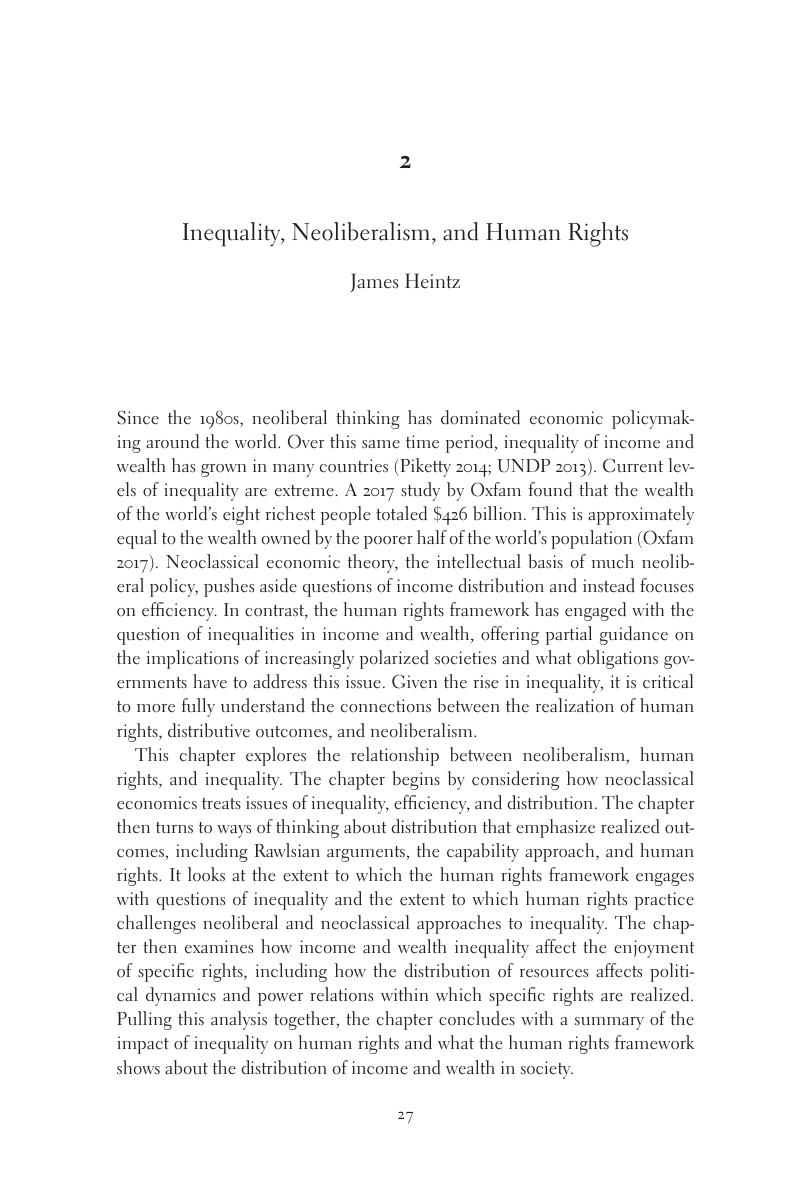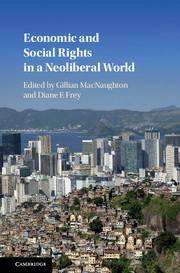Book contents
- Economic and Social Rights in a Neoliberal World
- Economic and Social Rights in a Neoliberal World
- Copyright page
- Dedication
- Contents
- Figures
- Tables
- Notes on Contributors
- Acknowledgments
- 1 Introduction
- PART I Economic and Social Rights under Neoliberalism
- 2 Inequality, Neoliberalism, and Human Rights
- 3 Neoliberalism's Law in Peru: A Model
- 4 Governing Risky Childhoods: How Neoliberal Governance Prescriptions Rule Out Social Rights in Israel
- 5 Neoliberalism and the Privatization of Social Rights in Education
- 6 Equality Rights beyond Neoliberal Constraints
- PART II Economic and Social Rights in Times of Crisis
- PART III Economic and Social Rights in Development
- Part IV Accountability for Economic and Social Rights
- Index
- References
2 - Inequality, Neoliberalism, and Human Rights
from PART I - Economic and Social Rights under Neoliberalism
Published online by Cambridge University Press: 13 July 2018
- Economic and Social Rights in a Neoliberal World
- Economic and Social Rights in a Neoliberal World
- Copyright page
- Dedication
- Contents
- Figures
- Tables
- Notes on Contributors
- Acknowledgments
- 1 Introduction
- PART I Economic and Social Rights under Neoliberalism
- 2 Inequality, Neoliberalism, and Human Rights
- 3 Neoliberalism's Law in Peru: A Model
- 4 Governing Risky Childhoods: How Neoliberal Governance Prescriptions Rule Out Social Rights in Israel
- 5 Neoliberalism and the Privatization of Social Rights in Education
- 6 Equality Rights beyond Neoliberal Constraints
- PART II Economic and Social Rights in Times of Crisis
- PART III Economic and Social Rights in Development
- Part IV Accountability for Economic and Social Rights
- Index
- References
Summary

- Type
- Chapter
- Information
- Economic and Social Rights in a Neoliberal World , pp. 27 - 40Publisher: Cambridge University PressPrint publication year: 2018
References
- 3
- Cited by



